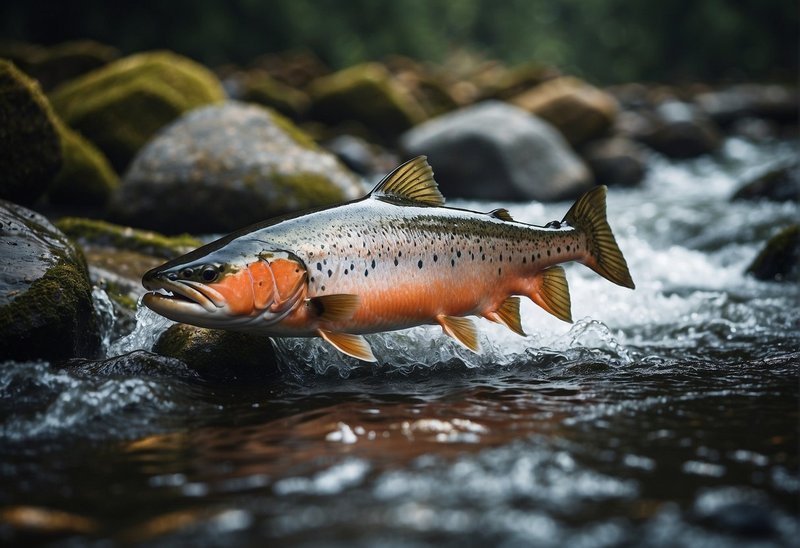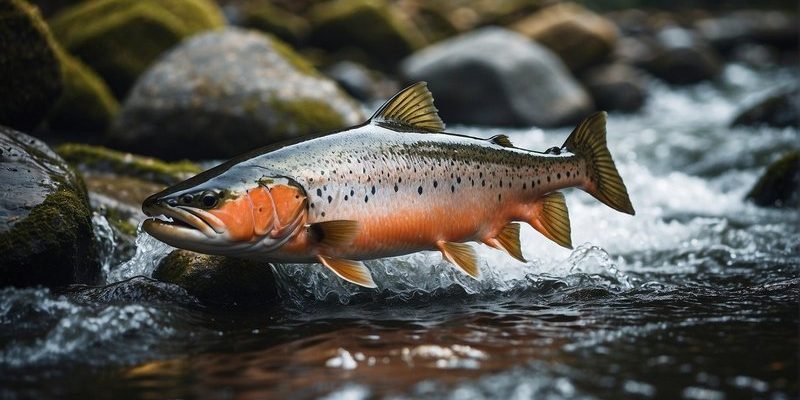
Here’s the thing: these myths aren’t just fanciful tales. They often reflect the values, struggles, and beliefs of the cultures that hold them dear. For instance, many indigenous peoples of the Pacific Northwest see salmon as not just a food source but as a spiritual guide. Understanding these stories can give you a new appreciation for this remarkable fish and the people who have celebrated it for centuries.
So, grab a cup of coffee, and let’s dive into the rich tapestry of myths and cultural beliefs about salmon. You might be surprised by what you learn and how these stories resonate with our lives today.
1. Salmon in Indigenous Cultures
Across North America, salmon have played a crucial role in the lives of many indigenous peoples. For these communities, salmon are not just fish; they are a vital resource that sustains life. The fish are often revered in their cultures, symbolizing strength, perseverance, and renewal. The Salish people, for example, celebrate the return of salmon each year with ceremonies that honor their journey upstream to spawn.
These ceremonies often include *potlatch* events, where families share food and stories related to the salmon. It’s a time when communities come together to express gratitude, ensuring that the wisdom of the salmon continues to be passed down. You might be wondering, why are these gatherings so important? They help maintain a strong bond among community members, reinforcing shared values and cultural identity.
In many indigenous stories, salmon are depicted as teachers, guiding humans in sustainable living. This relationship highlights a profound respect for nature, which underscores a key lesson: when you take care of the environment, it takes care of you. It’s a reminder that our existence is interconnected with nature, and that includes our diets.
2. The Myth of the Salmon’s Spiritual Journey
One popular myth about salmon is their spiritual journey. Many cultures believe that salmon embark on a tremendous quest, swimming upstream against strong currents to return to their birthplace and spawn. This journey is often seen as a metaphor for overcoming obstacles in life.
In these stories, the salmon face numerous challenges: predators, rough waters, and sometimes even human interference. But despite all odds, they keep pushing forward. This struggle mirrors human experiences—think of the challenges we all face and how perseverance can lead to personal growth.
The journey of the salmon can inspire us to reflect on our own lives. Are there obstacles you’ve faced that have shaped who you are today? Just like salmon, we often find strength in adversity. They teach us that while the journey may be tough, the destination can be incredibly rewarding.
3. Salmon and Sustainability: A Cultural Belief
Sustainability is not just a modern concept; it’s woven into many cultural beliefs about salmon. Indigenous peoples have long recognized the importance of preserving salmon populations. They understand that overfishing or pollution can have devastating effects, not just on the fish but also on their communities and the environment.
Many cultures advocate for practices that honor the life cycle of salmon. For instance, they promote only catching what is needed, allowing the fish to reproduce and maintain healthy populations. This sustainable approach ensures that future generations can also enjoy salmon, both as a food source and a cultural symbol.
You might find it interesting that numerous contemporary movements echo these age-old beliefs. Today, many organizations are committed to preserving salmon habitats and promoting responsible fishing. By respecting traditional knowledge, we’re reminded that sustainability isn’t just a trend; it’s essential for our survival.
4. Salmon in Folklore and Storytelling
The tales of salmon aren’t just confined to the rivers and oceans; they flow into the realm of folklore and storytelling as well. Many cultures have myths that personify salmon, giving them human-like qualities and roles in their stories. For example, some tribes believe that salmon have the ability to communicate with humans, sharing wisdom about the earth and the sea.
These stories often include lessons about respect, responsibility, and the balance of nature. They remind us that every creature plays an important role in the ecosystem. When salmon are thriving, it reflects a healthy environment. This connection reinforces the idea that caring for our world benefits not just the fish but ourselves too.
Storytelling serves as a powerful tool for passing down knowledge and traditions. Think of it like a river that carries wisdom across generations. These tales encourage listeners to reflect on their own lives and responsibilities toward the environment, linking their personal experiences to broader themes of respect and cooperation.
5. The Symbolism of Salmon in Modern Culture
In today’s world, salmon still holds significant symbolism in various aspects of culture. You’ll often see salmon depicted in art, literature, and even branding. They are symbols of strength and adaptability, perfect for conveying messages of resilience. Many chefs also use salmon as a symbol of high-quality, healthy eating, emphasizing its nutritional benefits.
For some, salmon represents a connection to the natural world. As we face challenges like climate change and habitat destruction, salmon remind us of the need for conservation and awareness. They symbolize the delicate balance we must maintain between consuming resources and preserving them for future generations.
The presence of salmon in popular culture can also spark curiosity about nature and conservation efforts. Documentaries and media that showcase the life cycle of salmon can inspire action, encouraging viewers to engage in sustainable practices and advocate for environmental protection. In this way, even a simple fish swimming upstream can have a powerful ripple effect.
6. Myths vs. Reality: Understanding Salmon Behavior
While many cultural beliefs celebrate the salmon’s perseverance, some myths don’t hold up to scientific scrutiny. For example, you may have heard that all salmon die after spawning, but that’s not entirely true. While many species do die after they reproduce, some can survive and spawn multiple times. This reality emphasizes the adaptability and resilience of salmon, which is often celebrated in various myths.
Additionally, salmon can adapt to different environments, which is sometimes overlooked in folklore. Not all salmon return to the same stream to spawn. Environmental changes or human activity can influence their traditional routes, leading them to discover new spawning grounds. This adaptability reflects the broader lesson that life often requires us to adjust and find new paths.
Understanding the reality behind these myths allows us to appreciate not just the cultural significance of salmon but also their biological marvels. It shows us that nature is more complex than any single story can portray.
7. Conclusion: Celebrating Salmon’s Cultural Legacy
Salmon are more than just a meal; they are a tapestry of stories, beliefs, and values that span cultures and generations. From indigenous rituals to modern symbolism, they remind us of the interconnectedness of life and the importance of sustainability. As we explore the myths and cultural beliefs surrounding salmon, we also uncover lessons about resilience, respect for nature, and the significance of community.
So, the next time you sit down to enjoy a salmon dish, think about the rich history behind it. These stories are not just for the history books; they are alive in our consciousness, reminding us of the importance of preserving both our cultures and our environment. By celebrating salmon, we are also celebrating the intricate relationships we have with our world and the legacies we share.

